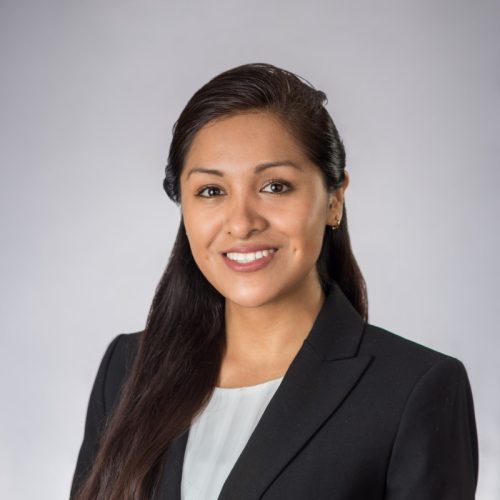Meet Dr. Rosa Maria Pari Ñaña, Award Winning ME/CFS Researcher
From the desk of Ronald Tompkins, MD, ScD
Chief Medical Officer, Open Medicine Foundation
An Interview with ME/CFS Researcher
Dr. Rosa Maria Pari Ñaña
In case you missed it, I recently shared the exciting news that two young researchers assisting with the OMF-funded Harvard ME/CFS collaboration were awarded two prestigious grants for ME/CFS research by the Department of Defense’s Congressionally Directed Medical Research Program! Together, the two awards total $547,201 over the next two years.
Earlier this week, Open Medicine Foundation (OMF) had the great pleasure to chat with award recipient Dr. Dan Wilkinson of University of Nottingham. Today, OMF is thrilled to share an interview with the second award recipient, Dr. Rosa Maria Pari Ñaña of Brigham & Women’s Hospital. Dr. Ñaña’s grant-awarded research explores vascular dysfunction and small fiber neuropathy, a nerve disorder, seen in some ME/CFS patients:
What motivated you to pursue the field of ME/CFS research?
Despite my medical education, I didn’t know about ME/CFS. When I found out that one of the principal fields of my mentor, Dr. David Systrom, was the field of ME/CFS, I started to learn about the disease and realized how prevalent, catastrophic, and devastating it was. Seeing the little research done on the disease was disappointing, but it also meant that a huge opportunity for researchers exists. This motivated my decision to pursue research in ME/CFS.
More recently, as Dr. Systrom’s mentee, I witnessed his work in ME/CFS and the enormous impact his research was having on his patients’ lives, which reaffirmed my interest in researching
What excites me about my work is to know that, in a way, we are helping people with ME/CFS and giving them hope."
Dr. Rosa Maria Pari Ñaña

What drew you to Dr. Systrom’s work?
What drew me to Dr. Systrom’s work was his passion and commitment. I was also inspired by his advocacy for a condition that does not receive enough recognition by the medical community despite affecting almost 2.5 million patients in the US alone. As a young physician who plans to manage clinical research duties in my future career, Dr. Systrom was the ideal mentor to learn from.
Can you tell us more about your team’s current research focus?
Our current research focus is understanding the pathophysiology of ME/CFS and identifying the different blood flow dynamics in people with ME/CFS using invasive Cardiopulmonary Exercise Testing (iCPET).
We’ve identified a subset of patients that have blood return impairment, also known as preload failure, who are responsive to Mestinon (pyridostigmine), a medication used to decrease muscle weakness resulting from myasthenia gravis. We are currently performing a double-blinded placebo-controlled clinical trial using Mestinon. We hope that this clinical trial will give us more insight into Mestinon as a potential treatment and help clinicians who treat ME/CFS identify which patients will likely benefit from Mestinon from those who won’t.
What excites you most about your work?
What excites me about my work is to know that, in a way, we are helping people with ME/CFS and giving them hope. Listening to the patients who participate in our projects express their gratitude about the research that we are doing reaffirms my belief that we are heading in the right direction. Furthermore, I’m most excited that we are getting closer to finding out more about ME/CFS, which will open many doors for clinical trials, leading to a cure.
What do you most hope to achieve from your team’s current research?
We hope to understand the pathophysiology of ME/CFS and define the phenotypes (observable traits) that do exist in ME/CFS. Knowing what differentiates people with ME/CFS that respond to specific empiric treatments from the ones that don’t will let us find the right treatment for each of the phenotypes of ME/CFS.
What gives you the most hope for the future of ME/CFS research in general?
Seeing that public funding is increasingly financing ME/CFS research gives me hope that it is getting more recognition. The COVID-19 pandemic and the growing number of long haulers is unfortunate but predictably increasing the numbers of ME/CFS and likely will push the medical and research community to enhance research efforts and find a cure for ME/CFS.
OMF is proud of the work of bright young researchers like Dr. Pari Ñaña and Dr. Wilkinson who are both passionate about advancing critical research into ME/CFS.
As 2020 comes to a close, please consider giving the gift of hope by
donating to OMF today!